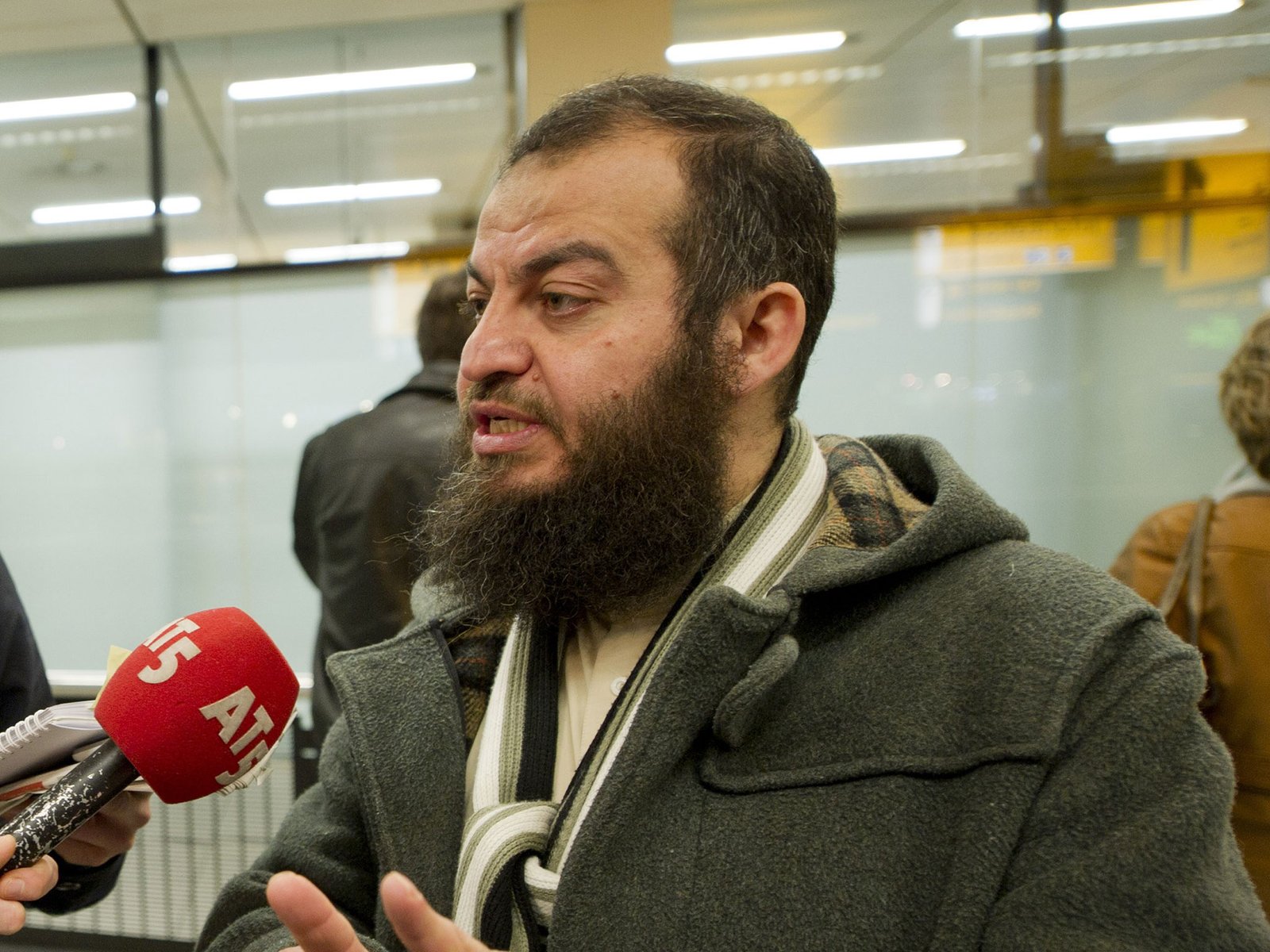Mak Chishty, former Met Commander has been recently quoted to say: ‘Without targeting Islamism and naming and shaming Muslim organisations such as CAGE and Muslim Engagement and Development (MEND), we risk having our safetIy and security threatened forever.’ Following four horrific terrorist attacks this year, it would seem Theresa May has decided to take action and form a new commission to counter extremism. With increasing calls like Chishty’s to oppose non-violent extremist groups, will new powers of disruption be on the agenda? And if so against whom should these power be exercised?
According to the Queen’s speech last Wednesday, the new commission will ‘support the public sector and civil society in ‘promoting pluralistic British values and reducing tolerance of extremism’. It will also ‘be expected to build partnerships with all those opposed to extremism, disrupt the most dangerous extremists, and build cohesive communities.’ All very positive assertions, but arguably this is already the strategy being implemented. The Counter-Extremism Strategy, published in Oct 2015, similarly posits to tackle extremism, setting out four key pillars of work: building cohesive communities, supporting local organisations that are opposed to extremism, countering extremist ideologies and disrupting extremism. Currently, however, this strategy has come with no new powers afforded to local authorities to enforce their new work stream.
There is hope that local authorities will be afforded power to better disrupt the work of extremists. This will be potentially realised through the creation of the new commission announced last Wednesday. David Cameron stated in the 2015 strategy that,
We need to put out of action the key extremist influencers who are careful to operate just inside the law, but who clearly detest British society and everything we stand for… we are going to introduce new narrowly targeted powers to enable us to deal with these facilitators and cult leaders, and stop them peddling their hatred. [1]

Understandably a power to ban organisations that are not proscribed and therefore well within their rights to express their freedom of speech, no matter how hateful, intolerant or as some would argue, dangerous, will be wholly controversial. On the other hand, in a world faced with the increasing threat from violent extremism and where secular values are being challenged by regressive sectarian ideals held by non-violent extremists in the public sphere, there is now, more than ever, a need for greater powers to combat the threat posed by extremism. A less controversial approach would be to enable institutions to call them out for what they truly are and therefore neutralise their ability to garner community support . But who are these extremists just beyond the reach of the law, and how dangerous are they?
Extremism is defined by the government as the ‘vocal or active opposition to fundamental British values, including democracy, the rule of law, individual liberty and mutual respect and tolerance of different faiths and beliefs, this includes calls for the death of members of the armed forces’. A prominent example of such an individual is the hate preacher Haitham al-Haddad, who has said that cases of domestic abuse should not be investigated; that peaceful co-existence between people of different religions ‘is wrong’; that female genital mutilation is ‘Sunnah,’ or Islamically correct; and ‘any system of law other than Sharia, he argues, ‘is invalid.’
Clearly Haddad should be considered an extremist and has been named as such. His abhorrent views fly in the face of our gender equal, multi-cultural, multi-faith democratic society. Despite this he regularly appears alongside large charitable organisations such as MEND, who have described themselves as a human rights charity with a keen emphasis on tackling Islamophobia. Most recently Haddad appeared with Azad Ali, the director of engagement for MEND, to persuade Muslims to vote in a way he believes would give their version of Islam more national support.

MEND’S Azad Ali is another controversial and increasingly notorious individual, having been filmed at a rally stating that there are not enough prayers being given for the Mujahideen in Mosques. Ali has also justified the killing of British Troops, which was made clear through a libel case he lost against the Daily Mail [2]. Additionally, whilst being filmed by an undercover reporter for Channel 4 Dispatches, Azad was recorded as saying that democracy should be dispensed with if its result is not the imposition of Sharia law: “Democracy, if it means at the expense of not implementing the sharia, of course no-one agrees with that.”
The organisation MEND, despite its human rights front is a divisive organisation. The organisations founder and CEO, Sufyan Ismail, instead of working to waylay tensions and divisions he has been consistently exaggerating the threat of religious hate crimes towards Muslims, which has had the effect of exacerbating the fears many in our communities are living with. In turn this may play into the hands of violent extremists by allowing to recruit and radicalise vulnerable members of our communities who are made to feel increasingly isolated and aggrieved by this scare-mongering message. For example Mr Ismail has claimed that British society “hates us” and that British law has specifically allowed violence against Muslims while protecting other groups; “It’s not a crime to use violent or threatening words or behaviour [against Muslims],” he said. “It’s perfectly OK under UK law to hate Islam and Muslims, it’s not a problem…if you’re Muslim, [the law says] you can take liberties big time, that’s why women are getting their hijabs ripped off.” The organisation’s key narrative then is that the government does not support Muslims and that it is purposefully downplaying and ignoring Islamophobia. This ‘us’ versus ‘them’ narrative is scarily similar to the narrative used by ISIS, that the West is in a conspiracy against Islam.

Moreover, the group promotes a homogenous version of Islam, calling liberal Muslims and Muslims with different views to their own, as not representing Islam or not Muslim at all. In fact many Muslims working to oppose extremism, Maajid Nawaaz (Quilliam) being an example, have been branded islamophobes by the organisation, an accusation frequently levelled against Muslims and others critical of extremist interpretations of Islam. This again is a similar divisive tactic used by ISIS who call all those who do not share their narrow, violent and fundamentalist interpretation of Islam apostates or ‘Takfir’ and therefore deserving of death. The tactic only serves to increase divisions between Muslims and non-Muslims as those who do not fully understand the faith are faced with a vocal group claiming to be the sole voice of Islam and thus preventing them from seeing the wide plethora of interpretations and sects within Islam. This means many are unwittingly encouraged by the MEND narrative to view Islam through only one interpretation of the faith.
On a final but no less important note, MEND has been a key player in eroding trust between communities, one of the only support system in place to safeguard vulnerable people from the threat of radicalisation. They have orchestrated a pernicious attack on the government’s Prevent strategy branding it an Orwellian spying tool intent on monitoring Muslims as a part of a supposed wider attack on Islam itself. The strategy instead sets out to intervene in the most high risk cases where individuals are being brainwashed into adopting a potentially violent ideology by providing them with mentorship and bespoke support tailored to the individual’s particular needs. De-legitimising this safeguarding mechanism is ultimately dangerous. If individuals are not seeking the support of the local authorities then ultimately they are not effectively safeguarding themselves from harm and worst case scenario they end up hurting themselves and/or others.
These individuals and groups clearly fall within the government’s definition of extremism, and the similarity between their methods and those of violent jihadist groups makes the case against them undeniable. Not only that, their intent on sowing distrust between communities and the institutions set in place to serve them only obstructs attempts to improve cohesion and integration. Finally, their attempts to lay claim to representing the Muslim community in its entirety only further drives misunderstanding and isolates Muslims who stand outside their understanding of Islam. It is vital then that these individuals and groups are prevented from posturing as ‘representatives’ of the Muslim community. They need to be called out for what they truly represent and intend to do. It is time then to become less ‘tolerant of intolerance’. Hopefully, by adopting such a stance, we will not face Chishty’s doomsday prophecy of our safety and security being threatened forever.








Posted by b.a. freeman
3 July, 2017 at 7:50 pm
it's hard to see how *anybody* can contort themselves to believe any other version of islam than the one believed by IS. the quran, all by itself (it's *not* the whole of islamic holy literature), contains well over 100 verses commanding muslims to hate (and in many instances to kill) infidels. yes, there are tiny sects of islam that don't believe the way sunnis (~95% of all muslims) and shia (~3% of all muslims) do, which is that infidels must accept islam or die, but when these muslims are discovered in islamic paradises like saudi arabia, they are usually killed for being apostates (as islamic holy lilterature commands). don't take my word for it. islamic "holy" literature is easily available online in english translations approved by the saudi islamic authorities, and better yet, by the islamic authorities of al azhar in cairo, which has been the premier institute of islamic "learning" since shortly before the year 1000. do *not* believe what muslims - especially *pious* muslims - may tell U, because lying to protect islam has been approved in islam since the very beginning. besides, if U want to prove that i'm a lying bigot, wouldn't it be more satisfying to use non-islamic authorities on islam, the very ones i suggest that U consult, to prove me wrong and bigoted?
Posted by Vivek Tandon
1 July, 2017 at 9:07 am
One of the realities the non-fanatic-Muslim cultures of UK have to face up to is - just as in humans, so in cultures: "irreconcialible differences" can happen between groups of people as well. (Um perhaps especially if one group believes in a God given right to destroy other groups by genocide, slavery etc)